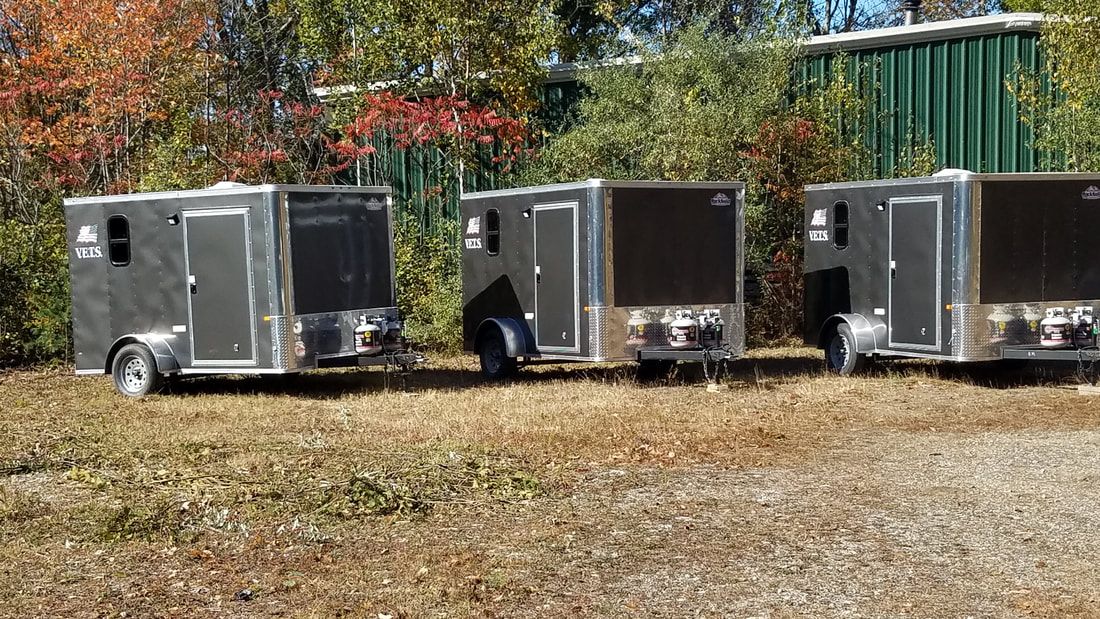Ed Harmon knows what it’s like to have to return to the civilian world after fighting in a war. He has also seen firsthand what happens to some veterans who can’t adjust or get access to services and wind up homeless.
“There was no solution for the problem, and that didn’t sit well with me. I believe if you think, you can come up with a solution,” he said.
Harmon’s solution is Boothbay Veterans, a nonprofit he created in his hometown two years ago with the goal of making sure that, especially in the brutal Maine winters, no veteran has to worry about finding a warm place to sleep at night. His organization builds trailers that serve as temporary shelter for homeless veterans while they connect with social workers, job training, placement programs and other assistance.
Harmon, 74, served as a sniper for the U.S. Navy from 1966-1970 during the Vietnam War. Upon coming home, he was aware of organizations such as the American Legion, including his local post, but he really saw the length of the post’s compassion after he had heart surgery in 2018. At the time the post’s commander looked in on him frequently, making sure Harmon was recovering and asking if he needed anything.
That later motivated Harmon to offer assistance himself to Maine veterans. Through volunteer work with the local post, he said he saw how easy it was for veterans to lose access to critical assistance such as health care, mental health counseling and job training. Often, he said, veterans misplace a critical document called a DD214. The document, issued to all discharged veterans, details the veteran’s service and proves eligibility for benefits. Without it, he said, veterans can sometimes literally be left out in the cold.
Veterans continue to make up a percentage of homeless people nationwide. According to a report released in February 2022 by the U.S. Department of Housing and Urban Development, there were 19,750 veterans in homeless shelters in 2021, representing 8% of sheltered homeless adults overall. The report notes that veterans experiencing sheltered homelessness account for 11 out of every 10,000 veterans in the country.
Amy Morin, acting homeless programs coordinator for the Veterans Health Administration in Maine, said right now there are 137 homeless veterans statewide. Of those, she said, 32 are unsheltered, meaning they have no place to live.
Morin said her office has seen that number grow since the pandemic, with the housing crisis exacerbating the problem. Prior to March of 2020, she said, her office was able to find permanent housing for a homeless veteran within 90 days. Now, she said, it takes 150 days or more.
“That’s a pretty significant change over the past two years that has really impacted the housing availability,” she said. “That is one of the biggest, biggest obstacles (for veterans).”
For Harmon, the moment that led to what eventually became Boothbay Veterans came in 2019, when he learned about a veteran in Brunswick who was found dead near railroad tracks on a cold evening.
“I never ever want to hear about another veteran dying in the freezing-ass cold,” he said.
So Harmon set about designing temporary housing trailers. It took some time, and help from a local attorney who volunteered his time and further assistance from Rep. Chellie Pingree’s office, but in 2020 Harmon formally registered his idea and organization as a nonprofit. From there, he said, local hardware stores and home centers donated raw materials, and he even found prisoners currently serving at the Maine State Prison in Warren who are also veterans volunteering to build the trailers through a work program there. Today, Harmon said, there are 23 trailers built, with more on the way.
The small, boxy enclosures don’t look like much from the outside, but they are insulated and contain a bed, desk and chair. Propane tanks run a heating element to keep them warm, and if they are hooked up to electricity there is even a small microwave oven. Harmon said each trailer is equipped with a $50 gift card for groceries, along with some basics like bottled water and instant coffee.
Harmon said as long as a veteran is seeking help from social workers, the U.S. Department of Veterans Affairs or any other group offering assistance to veterans, they can get access to a trailer.
“We can put it somewhere, and know they’ll be warm, safe,” he said.
One major obstacle right now, Harmon said, is where to put the trailers, but he’s working on an answer to that problem. He has recently forged an agreement with local campsites to place a veteran’s trailer there provided the veteran volunteers to work at the site, and he said he is reaching out to businesses to create the same arrangement.
At the moment, he said, trailers are often temporarily located on private property, with the owners’ permission, but Harmon believes he may soon be able to secure donated land.
Since starting in 2020, the nonprofit has provided temporary shelter to 24 veterans, and this week there are currently eight veterans staying in trailers around the state. That includes one man, Harmon said, who was found about two years ago sleeping outside in Acadia National Park. He is now living in a trailer on private property in Southwest Harbor, and has managed to find work. The housing crisis has made it difficult for him to find a permanent home, Harmon said, but the veteran is working with assistance groups and caseworkers to find a solution..
“I will never throw that vet out of that trailer,” he said.



